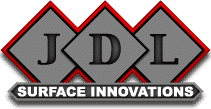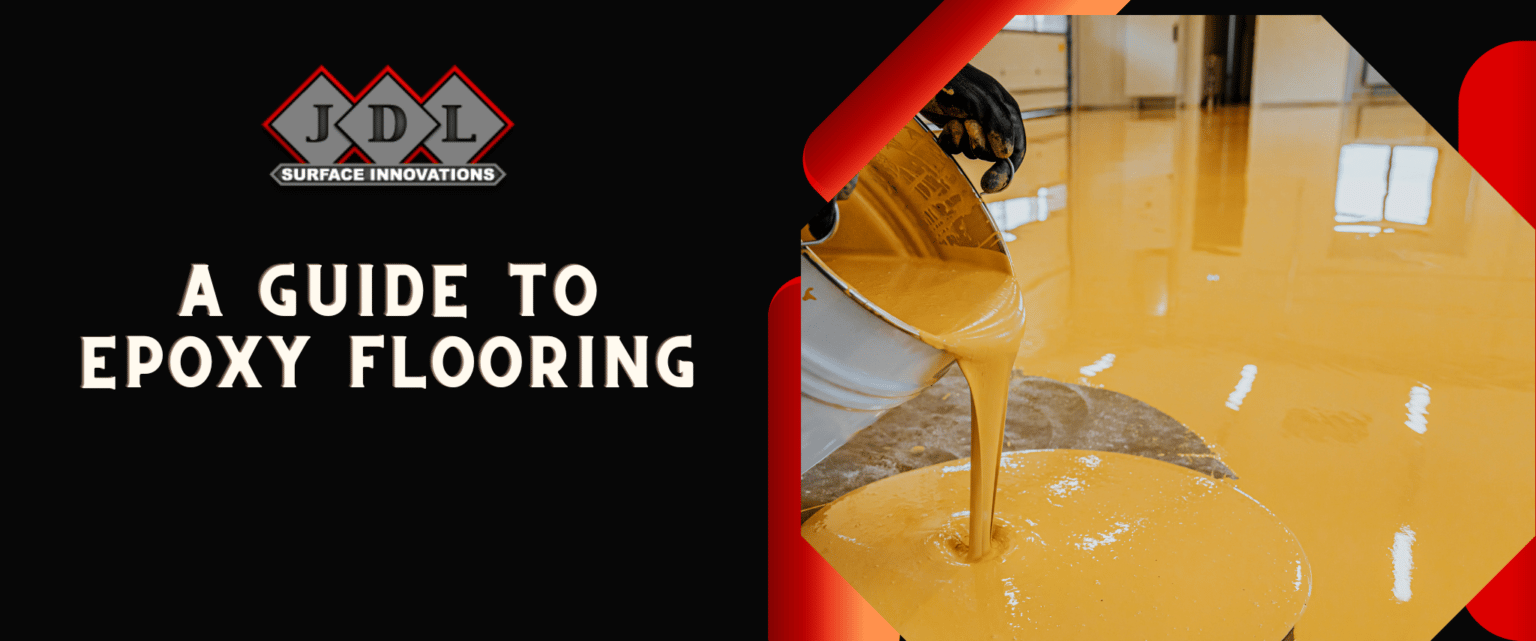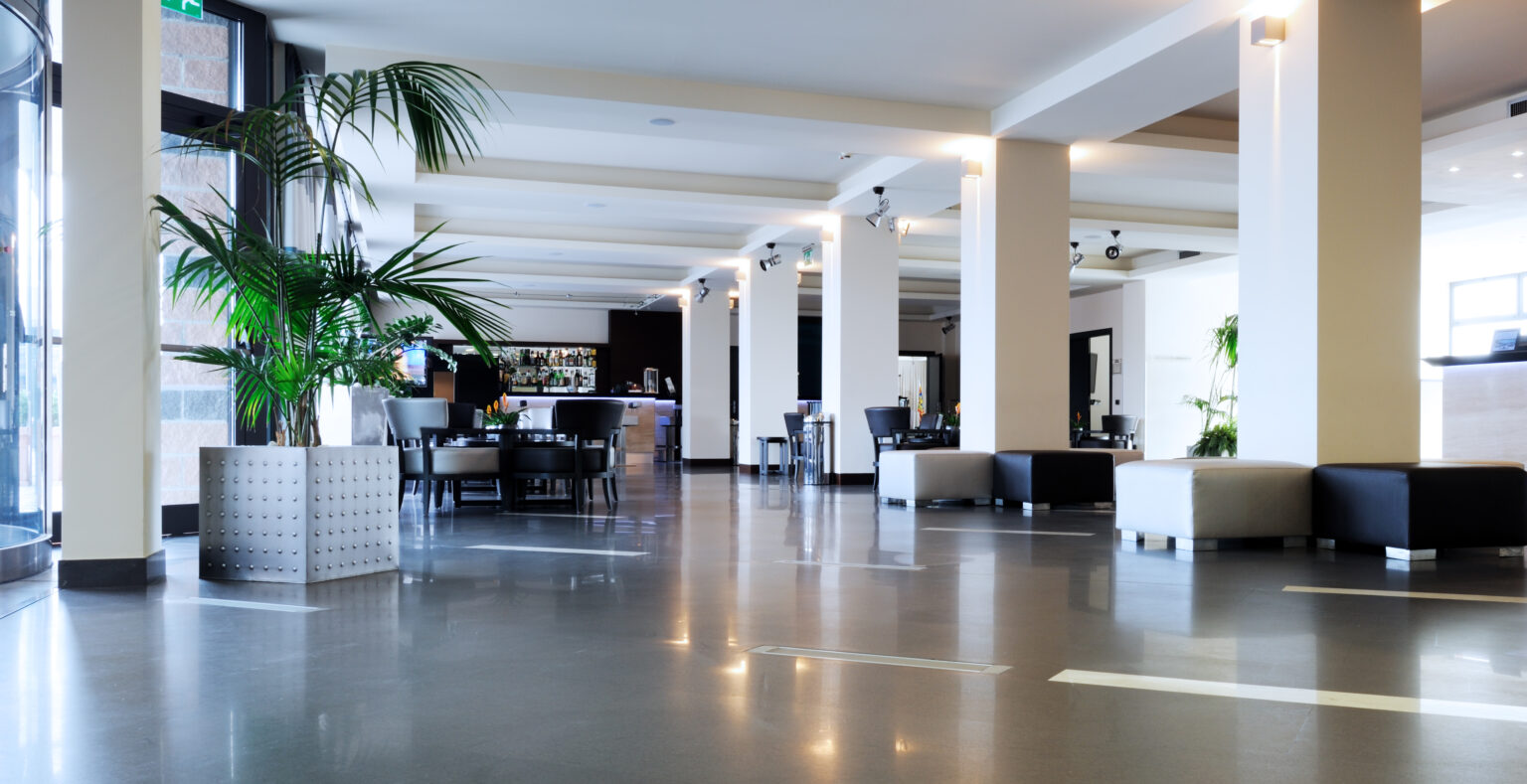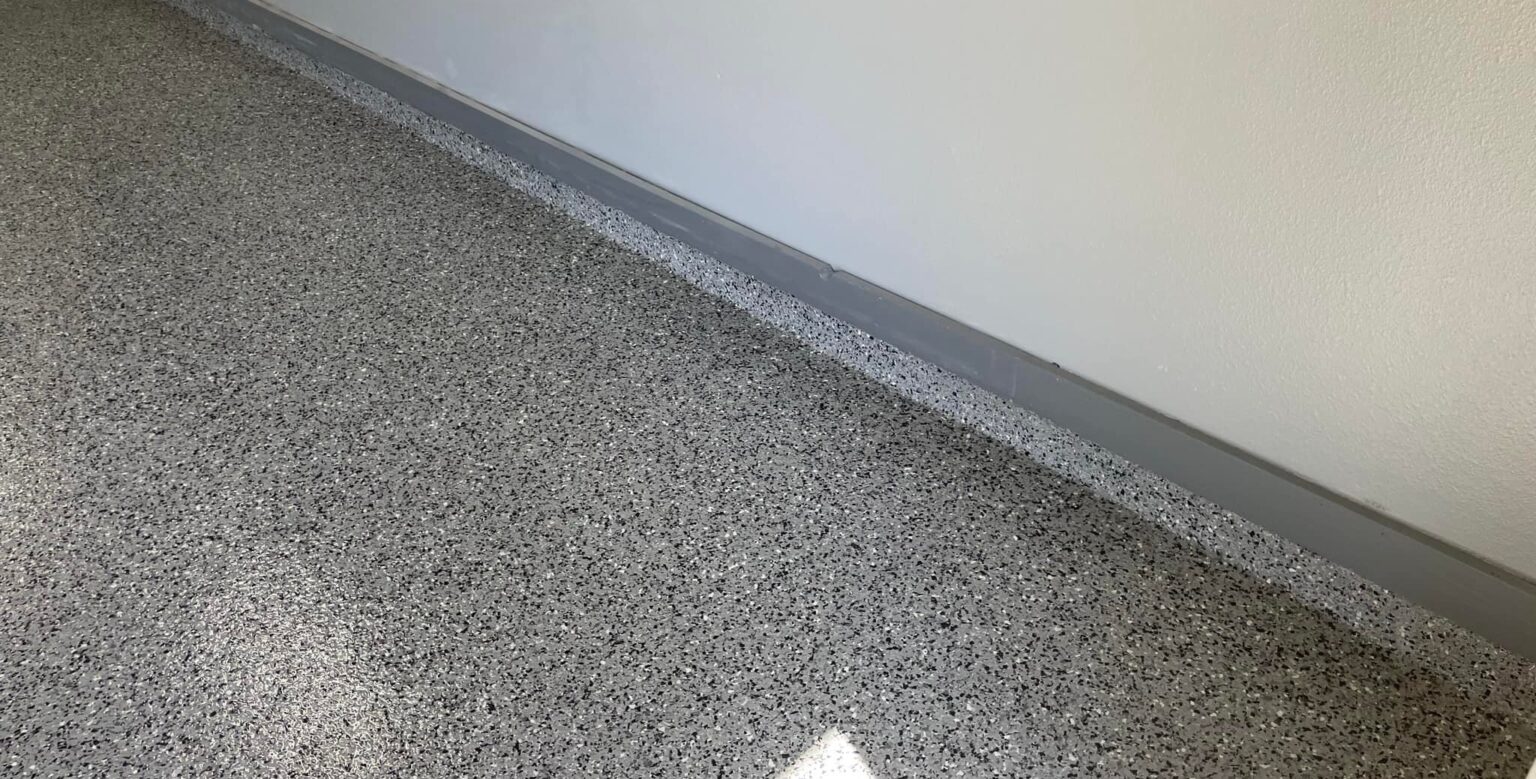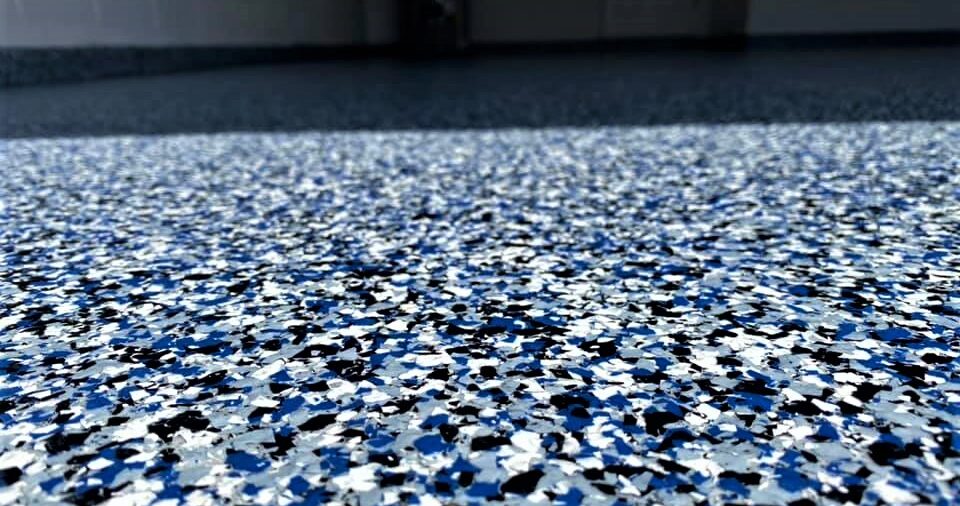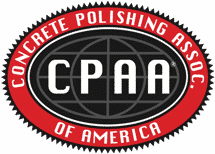Jump To Section
Why use An Epoxy Flooring System?
Floors, which are easily the central part of buildings, see a lot of traffic from people, cars, and in the case of industrial buildings and warehouses, heavy machinery. Regardless of how durable, the concrete surface will eventually reflect the abuse it takes. Water or extreme temperatures might cause it to crack, while vehicle fluids and other chemicals might leave behind stains that could become permanent. Eventually, these defects will dull the overall appearance of the concrete floor and put it at risk of more severe damage, such as crumbling or fires.
The best solution for protecting and safeguarding the floor of various high-traffic places would be to use epoxy flooring, which is highly durable and comes in a wide variety of choices.
What is Epoxy?
Epoxy consists of a two-part chemical and liquid resin. These parts combine and cause a reaction with each other that forms a solid. When this resin covering gets applied to a concrete floor, it self-levels and acts as a tough protective coating.
It then cures over a bit of time, forming a hard clear or pigmented coating that is extremely durable and water-resistant. These resins create an extreme performance surface. When mixed with aggregates like vinyl chips or colorful quartz pieces, epoxy generates a decorative appearance. And, when combined with polymer grits, it forges a safe, anti-slip texture.
Epoxy floors are helpful in several applications, including commercial, industrial, and residential applications. Epoxy flooring is recommended for a wide variety of industries and buildings, including, but not limited to:
- Manufacturing Facilities
- Warehouses
- Showrooms
- Commercial Garages
- Commercial Kitchens
- Hospitals
- Aircraft Hangars
- Athletic Flooring
- Hallways Walkways
- Lobbies Corporate Offices
- Greenhouses Hotels
- Stadiums Retail Stores
- Showrooms Galleries
- Locker Rooms Museums
Manufacturers highly recommended that a base coat be poured first followed by the next layer called “flood coat.” Afterward, a Urethane or Polyaspartic protective coating is applied which provides scratch resistance. The cured epoxy has a shiny surface, known as a high gloss finish.
Benefits of Epoxy Flooring
Waterproof
Epoxy floors resist the growth of mold, mildew, and other harmful bacteria, making them optimal for use in places that require a sterile environment. Commercial settings like hospitals and commercial-grade kitchens require thorough sanitization daily, sometimes multiple times throughout the day.
With each use of cleaning solutions and water, flooring becomes more susceptible to dampness, leading to damaging bacteria and fungi. As stated earlier in our epoxy flooring guide, epoxy floor coverings create a water-tight bond, sealing the concrete below and preventing moisture penetration.
Chemical and Spill-Resistant
After a protective topcoat is applied, standard cement flooring is transformed into a chemical and spill-resistant surface. In addition, the epoxy coating turns porous concrete into a nonporous floor, meaning liquids of any kind are repelled and cannot seep inside. This makes the epoxy flooring system perfect for withstanding the abuse commercial flooring takes daily.
Consider a commercial kitchen. Think of the number of times in a day the floor comes in contact with water or spills. From grease and oils spilled during food preparation, water sprayed to wash dishes, cleaning products used on the floor to keep up with sanitation regulations, and the pressure washer exposure to remove those cleaning products all contribute to the potential damage to untreated concrete floors.
Increased Workplace Safety
Epoxy flooring for commercial use comes in an infinite variety of finishes and textures, all of which are customizable to specific industries and needs.
Easy to Clean and Maintain
The reason epoxy floors require such little cleaning and maintenance care is due to their ability to repel dirt and abrasives because of their seamless, tight seal. This dust-proof and also low odor property makes it a hypo-allergenic product, meaning it’s also safer for those employees and visitors that suffer from allergies. In some cases, the high gloss finish of the floors makes them even easier to clean.
Leading flooring experts suggest simple daily maintenance, including dust mopping the floor and spot cleaning with water or a non-abrasive cleaning solution. For regular deep cleaning, commercial epoxy floors need wet mopping with a neutral ph cleaner combined with water. This combination is to remove any dirt or debris missed by the dry mop.
According to industry professionals, cleaning should be done once every few months in light traffic areas and more often in high-traffic areas.
Longevity and Durability
Known for its durability, epoxy flooring enhances concrete floor protection from many forms of impact. Applying an epoxy floor coating to concrete floor surfaces ensures a reduction in damage to your equipment as well. Because of its smooth finish and optional additives like a vinyl flake or mild aggregate, traction increases, leaving little room for accidental impairments or deterioration risks.
This added protection directly contributes to the longevity of the epoxy flooring’s lifespan. Flooring experts agree that, with proper upkeep, epoxy flooring can last for up to twenty years when installed professionally.
We Are The Epoxy Experts
At JDL, our professional team comes with years of experience that makes epoxy less stressful for you. So, call us today and learn more about your options and how we can make a long-lasting, beautiful, and functional floor.
